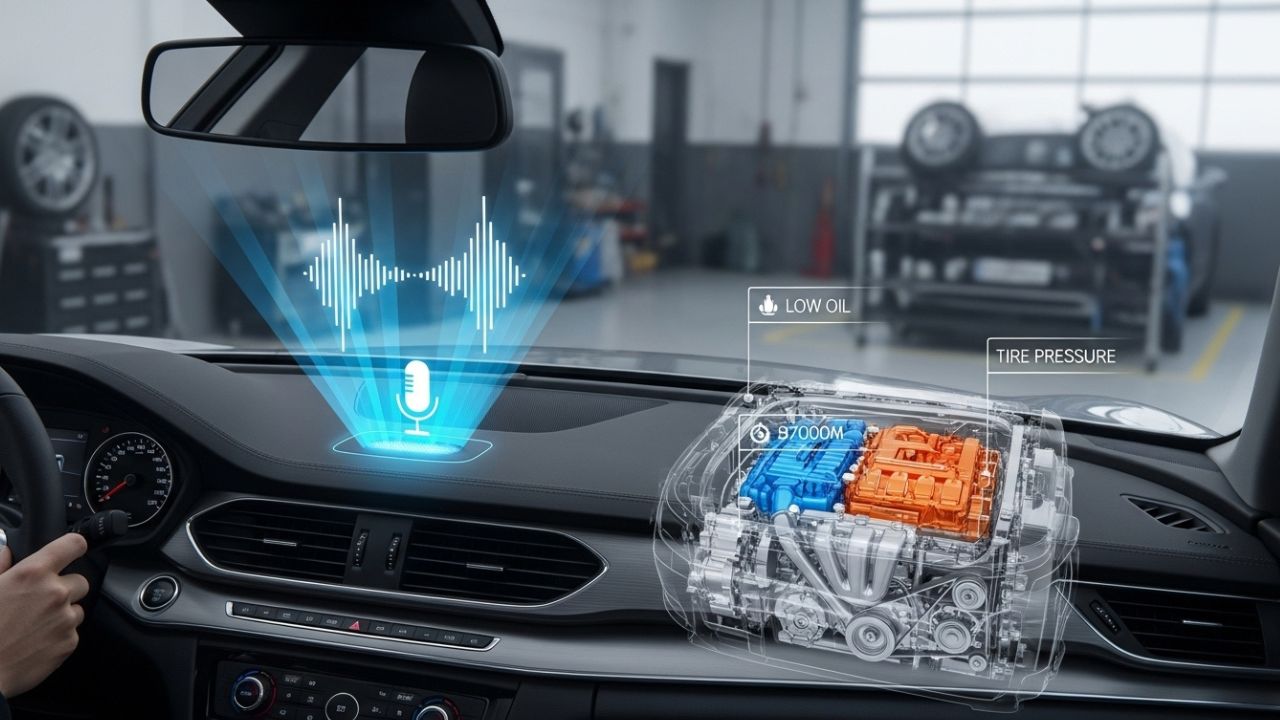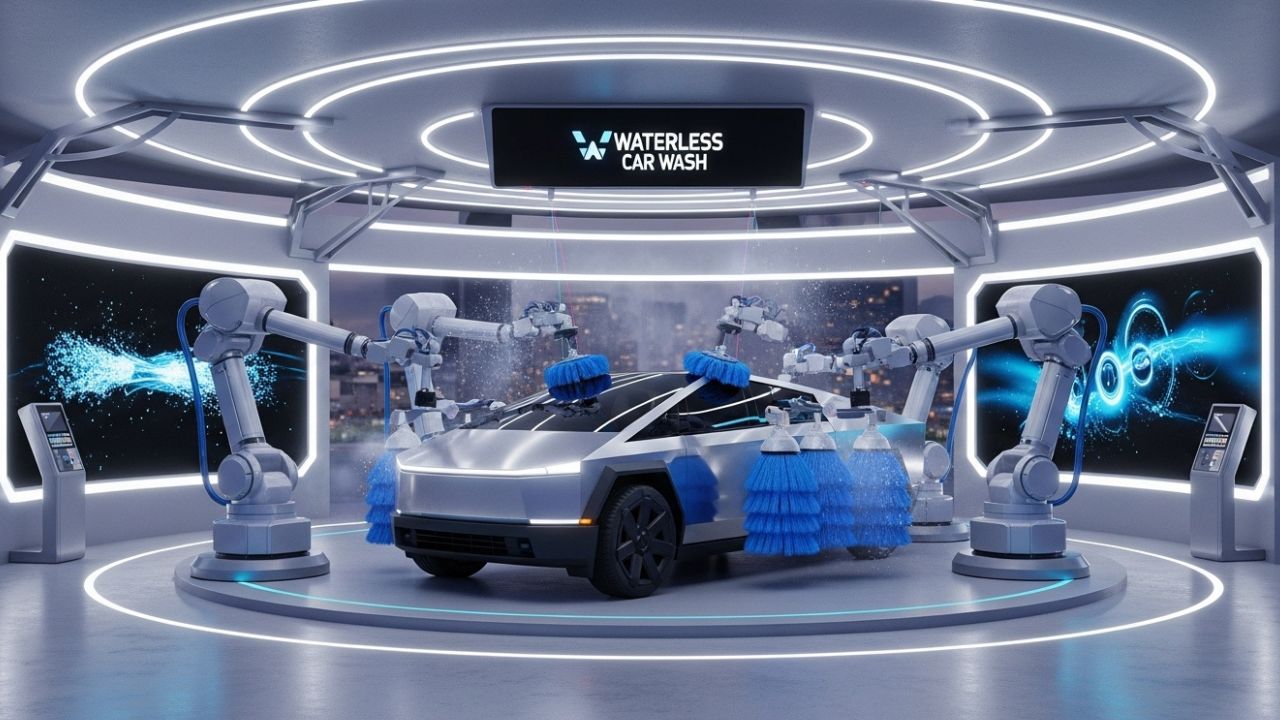The automotive industry is moving beyond traditional driving to a future where artificial intelligence helps owners take better care of their vehicles. Along with electric propulsion, connected features, and autonomous systems, another major digital assistant has entered the picture — voice AI platforms like Amazon Alexa and Google Assistant. These technologies have already transformed how people interact with smart homes, smartphones, and entertainment systems. But can they now play a meaningful role in vehicle maintenance?
This article explores in depth whether voice assistants can remind you about car servicing, how they can be integrated into modern vehicles, what benefits they bring to owners, and the potential challenges that still exist.
- The Rise of Voice Assistants in Mobility
- Vehicle Maintenance and the Role of Reminders
- Can Alexa and Google Really Do It?
- Benefits of Voice Assistant Integration in Car Maintenance
- Real-World Scenarios
- Challenges and Limitations
- The Future of Voice Assistants in Car Care
- How to Set Up Alexa or Google Reminders Today
- Conclusion
The Rise of Voice Assistants in Mobility
Over the past decade, voice assistants like Alexa, Google Assistant, and Siri have shifted from being novelty features to everyday tools. From asking for the weather to ordering groceries, millions of users trust them as hands-free, context-aware companions. Automakers quickly recognized this trend, leading to the integration of such assistants into infotainment systems.
For instance:
- Amazon Alexa Auto is embedded in selected vehicles or paired via an Echo Auto device.
- Google Assistant integration comes through Android Auto and newer built-in platforms like Google Automotive Services.
- Apple CarPlay with Siri also enables some maintenance-related reminders, though less advanced compared to Alexa and Google.
Now that these intelligent platforms are inside cars, the natural question arises: can they take over the responsibility of reminding owners to change oil, rotate tires, or schedule periodic maintenance?
Vehicle Maintenance and the Role of Reminders
Car maintenance can be broadly classified into two categories:
- Time-based maintenance: For example, oil changes every 6 months, AC filter replacements once a year, or brake fluid changes every two years.
- Mileage-based maintenance: For example, servicing after every 10,000 km, wheel alignment every 5,000 km, or brake pad replacements after 30,000 km.
Traditionally, owners rely on service booklets, stickers on windshields, or in-car digital alerts. While many modern vehicles already track mileage and trigger dashboard warnings, most drivers still forget to schedule service on time. Here is where voice assistants can step in as personalised notification systems.
Can Alexa and Google Really Do It?
The short answer: yes, but with a few conditions.
Voice assistants are not natively integrated with all cars’ diagnostic data, but they can work in three main ways:
1. Through Manufacturer Integration
Some OEMs (Original Equipment Manufacturers) are embedding Alexa or Google Assistant into their infotainment systems. For example:
- BMW, Ford, and Toyota have started rolling out Alexa-enabled infotainment systems.
- Polestar and Volvo come with Google Assistant built-in.
This allows for deeper integration where the voice assistant can pull vehicle health data, check mileage, and provide real-time reminders. For example, Google Assistant in a Volvo could say: “Your car is due for an oil change in 500 km, would you like to schedule a service appointment?”
2. Using Smart Home Routines
Even without direct car integration, users can manually input reminders into Alexa or Google. For example:
- You could say: “Alexa, remind me to service my car in 6 months.”
- Or: “Hey Google, remind me to rotate the tires after 5,000 km.”
This method relies on manual setup but still provides effective reminders.
3. Using Third-Party Apps and Devices
There are car health monitoring devices (like OBD-II dongles) that sync with mobile apps. Some of these apps now integrate with Alexa and Google to offer alerts. For example, an OBD device that reads engine codes can send a notification to your Google Assistant when it detects a maintenance issue.
Benefits of Voice Assistant Integration in Car Maintenance
The use of Alexa and Google Assistant for car maintenance goes beyond basic reminders. It adds real value through convenience, personalization, and connectivity.
- Hands-Free Alerts: Drivers can get verbal notifications without checking dashboards or paperwork.
- Integration with Lifestyle: Service reminders can appear alongside daily routines like morning briefings (weather, news, traffic).
- Multi-Device Sync: You can receive the same reminder on your phone, smart speaker, or car infotainment, ensuring you don’t miss it.
- Smart Scheduling: Assistants can even help book service appointments. For instance, Alexa could connect with your car dealer’s scheduling system.
- Predictive Maintenance Support: When combined with telematics and AI, voice assistants can push reminders before issues escalate.
Real-World Scenarios
Imagine these realistic cases of how Alexa or Google can help:
- You’re driving home, and your car crosses 9,800 km. Google Assistant interrupts your podcast and says: “Service due soon. Would you like me to find the nearest authorized service center?”
- A week before your planned road trip, Alexa reminds you: “Don’t forget your tire alignment check. Would you like to book an appointment at your usual workshop?”
- For EV owners, Google Assistant could say: “Your vehicle battery is at 80% health. It’s time to schedule a diagnostic check.”
These small but valuable reminders can drastically improve reliability and reduce chances of costly breakdowns.
Challenges and Limitations
Despite the potential, there are a few hurdles that prevent full-fledged adoption.
- Data Access: Vehicle health data is often locked within car manufacturer platforms, making integration difficult.
- Connectivity Issues: Not all cars have internet connectivity to link real-time with Alexa or Google services.
- Privacy Concerns: Sharing car health and location data with cloud platforms raises privacy and security concerns.
- Fragmented Ecosystem: Different brands have different systems (iDrive, SYNC, UConnect), making universal integration a challenge.
- User Awareness: Many drivers don’t realize that Alexa and Google can already act as simple service reminder tools with manual setup.
The Future of Voice Assistants in Car Care
Looking ahead, the role of voice assistants in car maintenance is likely to expand significantly:
- Deeper OEM Integration: Future vehicles will ship with built-in Alexa or Google platforms that integrate directly with the vehicle’s onboard diagnostics.
- Predictive Maintenance AI: Voice assistants will not only remind but also predict failures in advance based on driving patterns.
- Automated Service Booking: A fully synchronized system where an assistant not only reminds you but goes ahead and books an appointment, reschedules if needed, and adds it to your calendar.
- Aftermarket Expansion: Affordable OBD-II dongles and connected car accessories will bring these features even to older vehicles.
- Integration with EV Ecosystems: For electric cars, assistants will track battery health, charging schedules, and software updates as part of maintenance.
How to Set Up Alexa or Google Reminders Today
Even if your car doesn’t have built-in AI, you can start now:
- On Alexa:
- Open the Alexa app and go to “Reminders & Alarms.”
- Create a reminder like: “Service car on October 15th at 10 AM.”
- Alexa will notify you on your Echo device or phone.
- On Google Assistant:
- Say: “Hey Google, remind me to change engine oil after 10,000 kilometers.”
- You can also set location-based reminders like: “Remind me to book service when I reach the office.”
- Bonus – Connect with Car Apps:
- If your car brand has a companion app (e.g., Hyundai BlueLink, MG iSmart, Tata iRA), link it with Google Home or Alexa for notifications directly from the manufacturer.
Conclusion
Voice assistants like Amazon Alexa and Google Assistant are no longer just for playing music or controlling smart lights. They have the potential to evolve into proactive car maintenance companions. While full integration with vehicle diagnostics is still advancing, they can already help with timely reminders, scheduling tasks, and providing hands-free alerts.
For drivers who often forget service dates or rely too heavily on manual logbooks, using voice assistants could mean fewer missed check-ups, better car health, and even reduced maintenance costs in the long term. As automakers and AI platforms deepen their partnership, we are on the verge of a future where your car’s digital voice not only drives with you but also takes care of itself.




